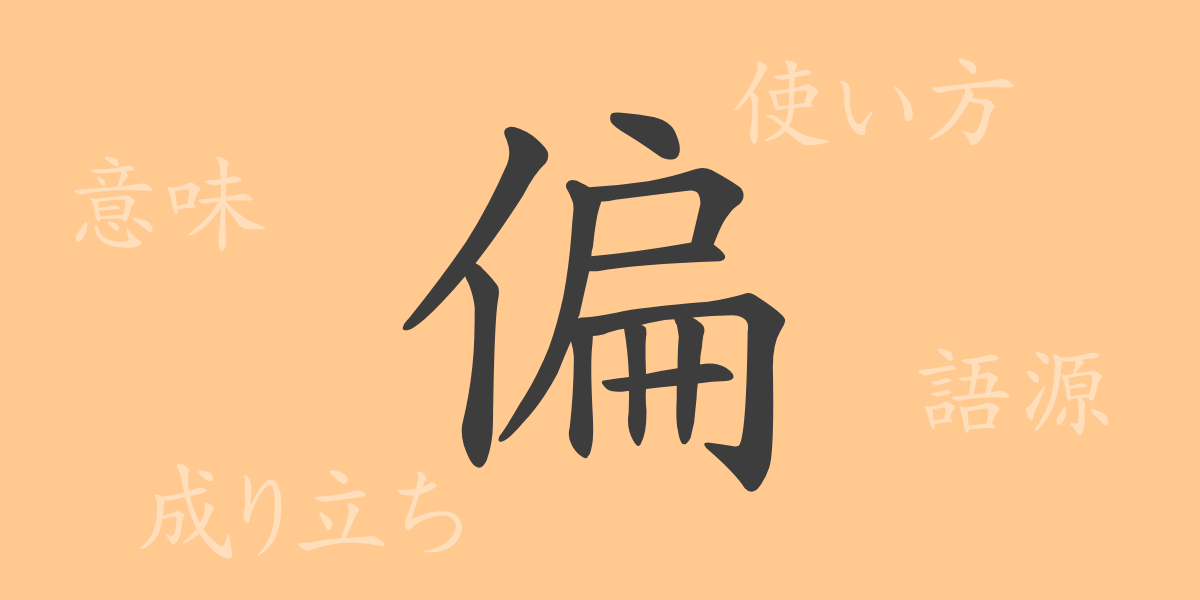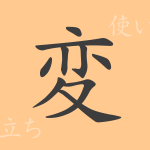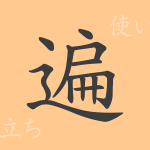In the Japanese language, there exists a diverse array of kanji used to express emotions, intentions, natural phenomena, and more. Among these, the kanji “偏(へん, hen)” is often overlooked in our daily lives, yet it carries deep meaning and a rich history. This article delves into the allure of the kanji “偏(へん, hen),” exploring its origins, meanings, usage, and how it integrates into our language.
Origins of 偏(へん, hen)
The kanji “偏(へん, hen)” can trace its origins back to ancient Chinese oracle bone script. Originally written as “扁(へん, hen),” it referred to a door on the side of a house. From this form, it evolved to indicate a state of leaning to one side or imbalance. Over time, it came to be used with the connotation of focusing on one side or aspect.
Meanings and Usage of 偏(へん, hen)
The kanji “偏(へん, hen)” carries meanings such as “one-sided” and “biased.” It is used to describe situations where something is not balanced and leans to one side. For example, a one-sided debate is expressed as “偏った議論(かたよったぎろん, katayotta giron),” and biased reporting is criticized as “偏向報道(へんこうほうどう, henkou houdou).” Additionally, the word “偏愛(へんあい, henai)” refers to an emotion leaning heavily towards one side.
Reading, Stroke Count, and Radical of 偏(へん, hen)
Let’s take a closer look at the readings, stroke count, and radical of the kanji “偏(へん, hen).”
- Readings: The On’yomi (音読み) reading is “ヘン(へん, hen),” and the Kun’yomi (訓読み) reading is “かたよ.る(katayo.ru).”
- Stroke Count: “偏(へん, hen)” consists of a total of 11 strokes.
- Radical: The radical is “人偏(ひとえ, hitoe),” which is a variant of the “person” radical.
Idioms, Proverbs, and Expressions Using 偏(へん, hen)
There are numerous idioms, proverbs, and expressions in Japanese that include the kanji “偏(へん, hen).” Here are some examples along with their meanings:
- 偏見(へんけん, henken): A biased view. A preconceived notion lacking fairness.
- 偏愛(へんあい, henai): Showing affection towards only one side.
- 偏差値(へんさち, hensachi): A statistical measure indicating an individual’s position within a group.
- 偏食(へんしょく, henshoku): Having strong likes and dislikes in food.
- 「偏にかたよらず(ひとえにかたよらず, hitoni katayorazu)」: A proverb expressing impartiality and fairness.
Conclusion on 偏(へん, hen)
The kanji “偏(へん, hen)” plays a significant role in our daily conversations and culture. Frequently used when questioning concepts of fairness and balance, this kanji influences how we perceive the world and how we act. Through this exploration, we have come to understand the rich meanings and usage of “偏(へん, hen).” As a commonly used kanji in Japanese, you will continue to encounter “偏(へん, hen)” in various contexts. When you do, recall the insights gained from this article.

























